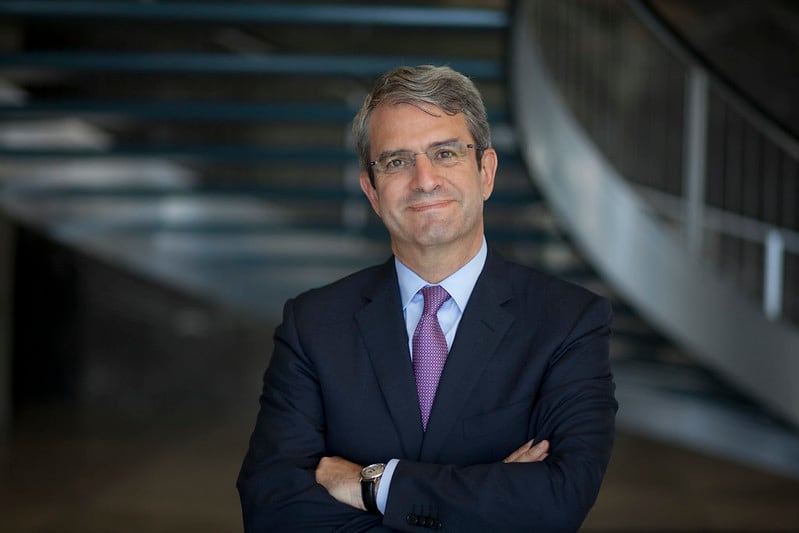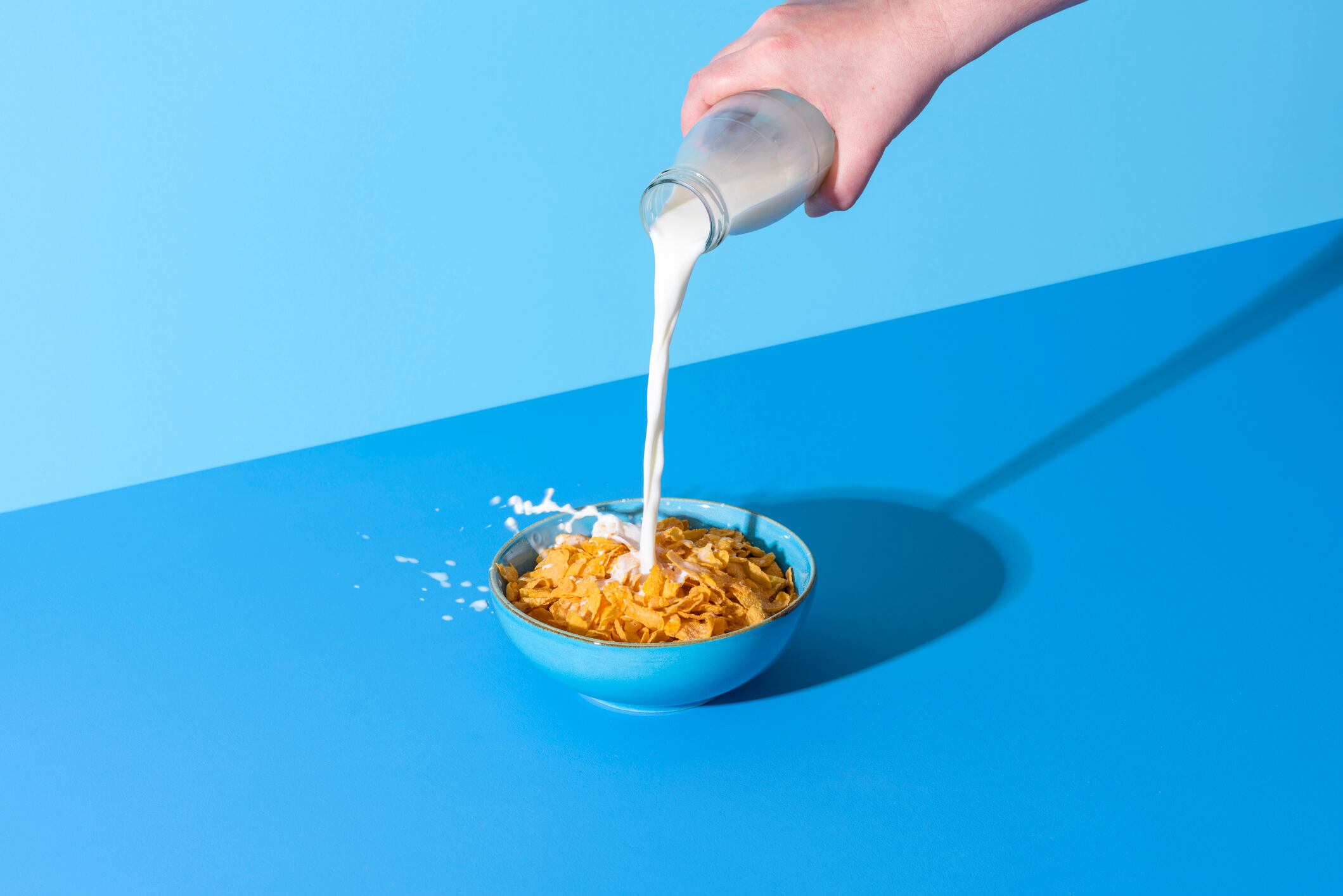September 2025 saw several high-profile CEO removals involving two of the world’s largest food and beverage firms.
These scandals received the heaviest media attention and were far from the only incidents linked to top leadership which rocked the food industry in the recent past.
Here are five of the most significant ones to have emerged over the past 18 months:
1) Nestle CEO Laurent Freixe – sexual misconduct scandal
It is extremely unlikely that anyone in the food industry has not heard of the scandal involving former Nestle CEO Laurent Freixe, who was dismissed in September 2025 after just one year in the role due to breaching the company code of conduct via a ‘romantic relationship with a direct subordinate’.
Nestle stated that this dismissal was due to Freixe violating the company code of conduct based on internal investigations into him led by the firm’s chairman – and especially for failing to disclose said relationship even after two investigations were held.
Freixe had denied the affair during the investigations, and the truth only came to light after the second one.
Nestle Chairman Paul Bulcke said in a statement that Freixe’s removal was a ‘necessary’ one, as the company’s core values of ‘respect, integrity, fairness and authenticity’ are ‘strong foundations of the company’.
“[Nestle is] not changing course on strategy and we will not lose pace on performance,” he said.
The last investigation saw Freixe handing over his mobile device to the inquiry team. After the announcement was made, during the first week of September Freixe made a congratulatory comment on successor Philipp Navratil’s LinkedIn post about his promotion.
“Dear Philipp, as I just recovered my communication tools, my first message goes to you and to the 270.000 Nestlé colleagues,” Freixe’s comment stated.
“It’s been an honour to serve Nestlé for the last 39 years, a life in itself. I wish you, and all the Nestlé colleagues, all the very best in this next phase, you deserve it!”
Notably, Freixe’s wife Agata Balcerowska was previously also a Nestle employee, and left the company’s employ after they got together.
Nestle did not offer any pay package to Freixe upon his dismissal.
2) Suntory CEO Takeshi Niinami – drug investigation scandal
Almost immediately after Nestle’s troubles came to light, beverage giant Suntory also shocked the industry when CEO Takeshi Niinami resigned over a police investigation into alleged illegal drug purchases.
Niinami voluntarily resigned from his post after informing the company about the police investigation, concerning supplement products allegedly containing tetrahydrocannabinol (THC) which is the main psychoactive substance causing intoxication in cannabis.
Suntory accepted this resignation on September 1, and an emergency press conference was held by the company after the news went public, where Suntory executives bowed in apology.
“Suntory recognises this as an extremely serious matter from a governance perspective [and no matter] the results of the investigation, we have determined that Niinami’s actions showed a lack of awareness regarding supplements and make him unfit for the important position of Chairman and CEO of our company.”
The products were allegedly purchased by Niinami from the United States, with the understanding that they were legal.
Japan has strict cannabis laws in place, and while products with cannabidiol (CBD) are legal for medical purposes and licensed commercial hemp cultivation is permitted, items containing THC are illegal.
Niinami became CEO over 10 years back, and was well-known as an unusually outspoken business leader. His strategy for Suntory’s growth was focused on a more global approach, pushing for international growth in areas such as ready-to-drink (RTD) items and premium whiskeys.
The continuation of this strategy is no longer guaranteed given his resignation, and thus far Suntory president Nobuhiro Torii has only highlighted that ‘the entire company will work together to regain trust’.
3) Mondelez China CMO Grace Zhu – e-Commerce and corruption allegations
A more locally-contained – but no less impactful – food leadership scandal took place in China in August 2024, when then-Mondelez China CMO Grace Zhu left her role and the company entirely after misconduct investigations linked with e-Commerce dealings.
Zhu’s inquiry was just one in a series corruption and bribery-related investigations across China, which affected multiple executives in companies such as Adidas.
Mondelez China had rapidly issued a statement highlighting that the company ‘adheres to the highest standards of compliance’, and that an internal investigation had been conducted, based on which Zhu had left the company.
The scandal saw both Zhu and former Mondelez China e-Commerce Director Simon Xiu both leave their roles simultaneously.
Although specific details of the e-Commerce and corruption allegations were not publicly released, the situation sparked widespread outrage across Chinese social media networking sites, where many dubbed her the ‘Empress’ of Mondelez China and concluded that ‘She should have been caught much earlier’.
Other enraged comments included ‘It’s unbelievable how some people can still be corrupt even having reached such a high-ranking position and earning such a high salary!’.
Speculation has also been rife about the what she was let go for, with the general conclusion being that Xiu being simultaneously let go likely meant that preferential treatment was being shown to e-Commerce business channels over offline retail for less-than-upstanding reasons.
That said, Zhu seems to be living up to her royalty status in the local food industry – As of February 2025, just six months after the scandal was all over the internet, she emerged from the ashes as General Manager (Greater China) for Indonesian company Mayora.
Mayora is best-known as owner of the traditional Kopiko candy brand, Danisa butter cookies and Roma biscuits – one of the best-selling biscuit brands in China, so it can clearly be seen that Zhu is not doing too badly despite the previous bad press.
4) Vietnamese Food Safety Authority – multiple officials indicted for bribery
Moving away from corporate scandals for a bit, the Vietnamese food industry and consumers alike were shocked earlier this year by the revelation of a widespread food fraud syndicate led by none other than the government officials meant to uphold local food safety.
The Vietnamese Criminal Investigation Agency under the Ministry of Public Security took several high-ranking officials into custody in May 2025, many of which were later indicted for bribery charges and either detained or placed under travel restriction.
Notable high-profile officials named in this case included the former Director of Vietnam’s Food Safety Authority (FSA), both the Director and Deputy Director of Vietnam’s Food Safety Application and Training Centre, as well as the Deputy Head of the Poisoning Surveillance Department.
The FSA is responsible for managing and issuing Food Safety Certificates to companies in Vietnam that require these by law, including those dealing in functional foods, food processing ingredients, food additives, food packaging and so on.
In total, 15 officials across various food safety agencies were indicted for receiving bribes, and three company executives were indicted for either document forgery or administering these bribes.
The syndicate in question revolved around GMP certificates being issued for two companies, MediPhar and MediUSA, that included fraudulent information and FSA employees being paid some VND3bn (over US$100,000) to overlook errors and expedite appraisals.
This scandal came as a major blow for the Vietnamese food industry, which has been working ceaselessly over the past few years to improve its poor reputation, including working with the South Korean government to establish a modern, digitalised food safety system.
Vietnam also inaugurated the establishment of the Vietnam Centre for Food Safety Risk Assessment (VFSA) in December last year, hoping to assess and identify food safety risks early on.
With this in mind, malpractice at such a high level within the FSA is highly likely to cause major setbacks for the government as local consumers, tourists and importers in other markets will now have doubts over the quality and safety of food products approved by the agency.
5) Wahaha inheritance scandal – ‘Water King’ passing sparks succession struggle
Wahaha is China’s largest beverage manufacturer, covering milk drinks, soft drinks, bottled water, bottled tea, fruit juices, yoghurt drinks and more.
Bottled water in particular is the company’s core product, and its dominance in the market led to late Wahaha billionaire founder Zong Qinghou being dubbed the ‘Water King’ locally.
Zong passed away in February 2024, and his passing opened the doors to one of the beverage industry’s most epic and theatrical succession scandals, as good as any telenovela available on screen.
Zong’s daughter Kelly Zong Fuli had always been considered the sole heir to his empire, but in December 2024 she was sued by three plaintiffs from the United States that were confirmed to be Zong’s children.
The lawsuit saw Kelly Zong’s three half-siblings demanding to enjoy equal inheritance rights to their father’s estate. They were reported to be Zong’s children with former Wahaha executive Du Jianying, often cited as a powerhouse behind the company’s success and Zong’s second-in-command.
The case was concluded in August 2025 with three offshore trusts established for each half-sibling (and their children), but the company was unequivocally succeeded by her as Chairman.
Throughout the legal proceedings, Wahaha had attempted to distance itself from the Zong family’s affairs. In July 2025 a statement was issued stating that: “The family’s internal affairs have nothing to do with the company’s operations and business. [Wahaha] will not be providing any responses or explanations on this matter.”
Despite this, the damage was already done as Wahaha has long had a wholesome, family-oriented image that definitely did not match the scandalous information revealed all through the court case.
Since the beginning of 2025, Wahaha has closed down 18 of its production lines, with several factories under its umbrella set for liquidation.
The company has denied that this has anything to do with the court case, saying: “In order to enhance our responsiveness to the end market, we need to adjust and optimise our production and marketing structure, resulting in the suspension of production at some factories.”
It is however notable that Kelly Zong’s half-siblings held director positions in many of the production sites that have been shut down.





